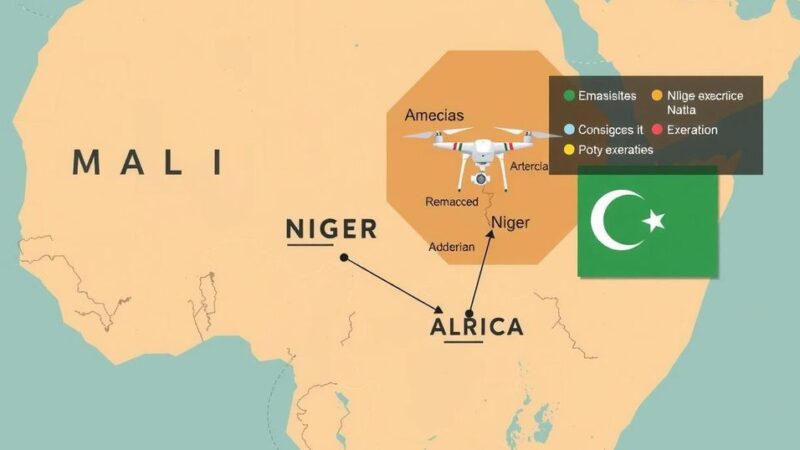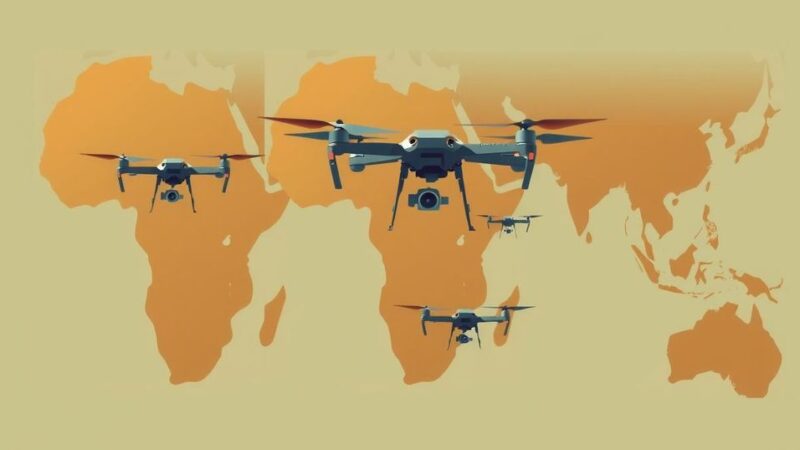Sudanese refugees in Chad are facing severe challenges following drastic U.S. foreign aid cuts. Organizations previously providing critical support, such as HIAS, have struggled to continue their work, impacting refugees’ access to essential services like counseling and education. The Trump administration’s substantial reduction in funding has left tens of thousands of vulnerable individuals at risk due to the cessation of support programs.
Sudanese refugees in the Aboutengue Camp in Chad face dire circumstances as essential U.S. aid is significantly reduced. The camp is predominantly inhabited by women and children who are urgently seeking assistance following the announcement of drastic foreign aid cuts by the U.S. government in January.
Fatehiyya Mohamed Adam, a refugee who fled conflict in 2023, lost everything due to a fire in her camp. The organization HIAS, which was scheduled to provide emergency services, was unable to do so following aid cuts. Although HIAS’s suspension was lifted in March, the future of its programs remains uncertain.
Many refugees shared poignant stories about their reliance on U.S. foreign aid. One woman, who preferred to remain anonymous due to safety concerns, recounted how HIAS’s intervention helped her after experiencing domestic violence. Unfortunately, due to funding challenges, HIAS has had to pause crucial support services, including counseling for gender-based violence victims.
In addition to humanitarian aid, educational support has also been compromised. Schools, such as those operated by Jesuit Refugee Services, previously provided education for over 32,000 students. After closures in January due to funding cuts, many teachers have returned as volunteers under precarious conditions, leaving a significant number of students unable to attend classes.
In March, the Trump administration drastically reduced funding, eliminating 83% of U.S. Agency for International Development (USAID) programs and 40% of State Department grants, citing concerns over waste and the ineffectiveness of these programs concerning U.S. interests. The overall cuts represent tens of billions in U.S. aid worldwide, further exacerbating the crises faced by refugees in regions like Chad.
The aid reductions have plunged Sudanese refugees into deeper hardships, significantly impacting their immediate access to humanitarian assistance and education. Organizations like HIAS, having had to freeze critical support services, face uncertainty in future funding, whilst educational institutions hold on to hope as they struggle to operate. The drastic cuts to U.S. foreign aid represent a consequential shift in support for those in dire need, particularly in conflict regions like Chad.
Original Source: www.nytimes.com






